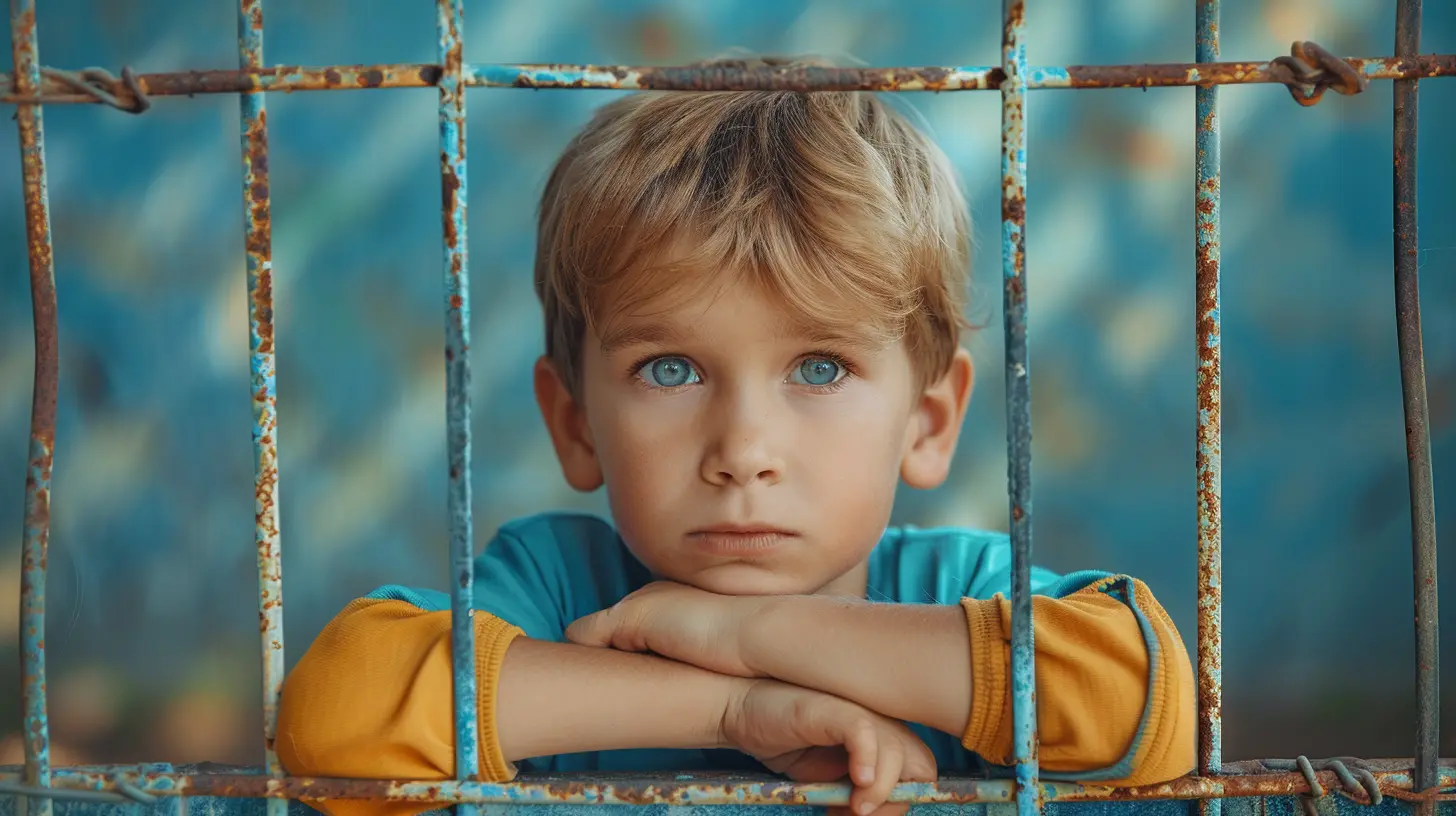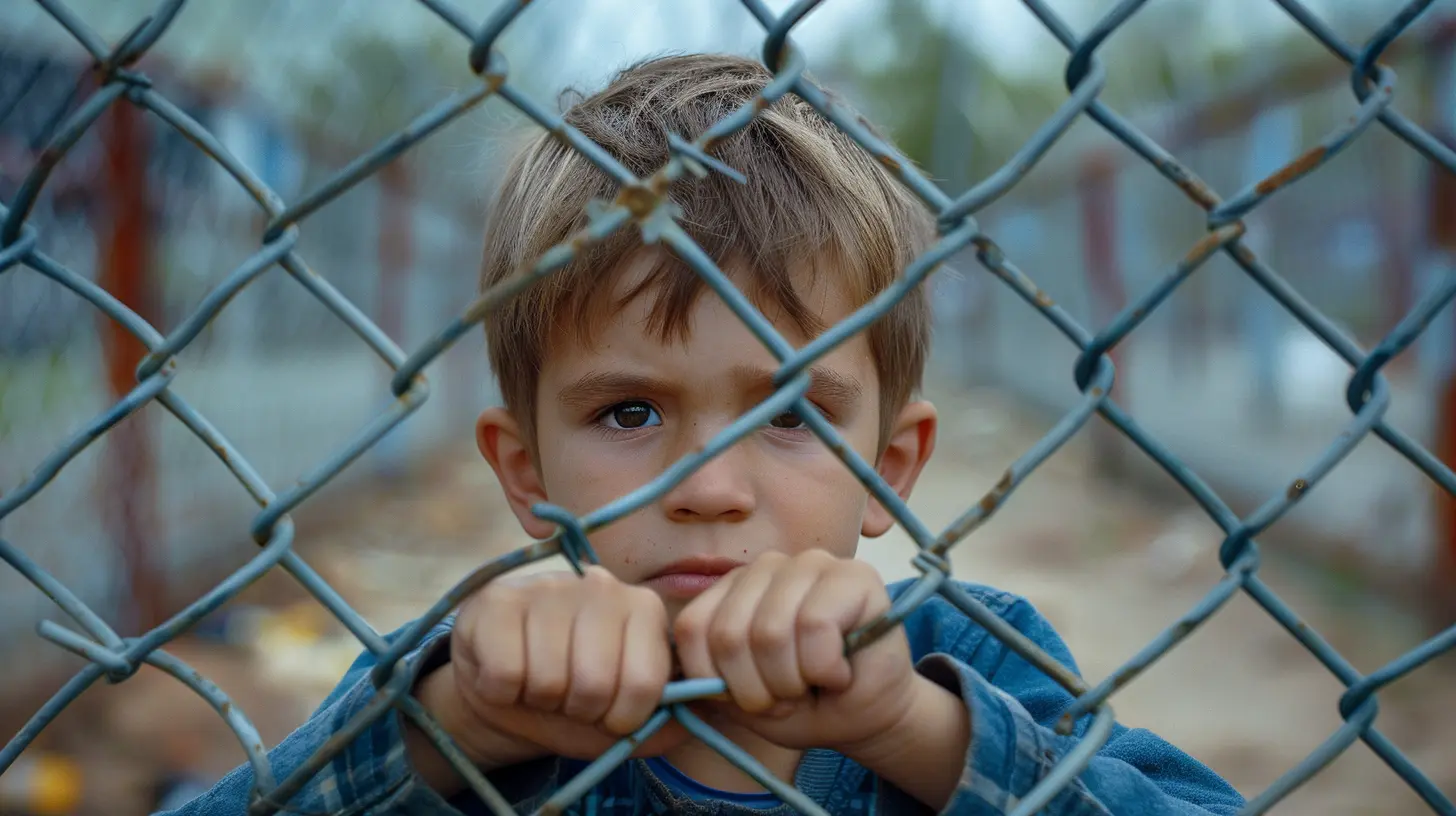Too Much Structure: When Your Child Needs Freedom to Thrive
3 August 2025
When it comes to raising kids, most of us want to give them the best. Right? We want them to be smart, responsible, and successful. So, what do we do? We sign them up for piano lessons, soccer practice, math tutoring, art classes, and maybe even throw in a second language for good measure. Their calendars are more booked than ours, and they’re only eight!
But here's the thing: structure is good, no doubt. Kids need routines, boundaries, and guidance. However, there’s such a thing as too much. When every minute is scheduled and controlled, we leave little room for creativity, exploration, or just plain fun. And sometimes, what your child truly needs is a little bit of freedom to thrive.
Let’s dive into why balance matters and how you can help your kids grow into confident, curious individuals without smothering them with structure.
What Does Structure Look Like in a Child’s Life?
Let’s set the scene. Structure in parenting typically comes in the form of:- Set routines (waking up, eating, studying, bedtime)
- Organized activities (sports, clubs, lessons)
- Rules and expectations (homework first, screen time limits, chores)
- Guidance and direction (step-by-step instructions and plans)
None of this is bad. In fact, structure helps kids feel secure and understand what’s expected of them. Routines can be comforting, especially for younger children.
But when every aspect of their day is planned and there’s no room to breathe—well, that’s when we run into trouble.
The Problem with Over-Structuring
Think about it from your own perspective. Picture someone micromanaging your every move—when you eat, what you wear, how long you can relax on the couch, and even when you can talk to your friends.Sounds suffocating, doesn’t it?
Now imagine being a kid living that every day. Over-structuring can lead to:
1. Burnout at an Early Age
Kids under constant pressure to perform or stick to tight schedules may experience stress, anxiety, and mental fatigue—not just in high school, but even in elementary school.They’re not mini-adults, and they shouldn’t be expected to handle the pace we think is "normal" for grown-ups.
2. Lack of Creativity and Imagination
You know when kids are left alone with a cardboard box and suddenly it’s a spaceship or a bakery? That’s creativity at work.But over-structuring often kills that magic. When every activity has a specific goal or direction, there’s no space for out-of-the-box thinking or pretend play.
3. Poor Decision-Making and Independence
If mom and dad always decide what’s next, how will your child learn to make their own choices?Children need chances to explore, fail, reflect, and try again. Over-structuring robs them of those opportunities.
4. Increased Anxiety Around Performance
Too much structure can lead to perfectionism. Kids feel like they always have to meet expectations and succeed at everything they do. That pressure isn't healthy, and it can stick with them for life.
Signs Your Child Might Need More Freedom
So, how do you know if your child is being boxed in too much? Watch for these clues:- They seem anxious or overwhelmed
- They complain about being tired a lot
- They lack interest in activities they used to enjoy
- They rarely play freely or on their own
- They seem afraid to make decisions or try new things
- They rely heavily on adults for direction
If any of this sounds familiar, it might be time to loosen the reins a bit.
The Power of Unstructured Time
Let’s talk about the magical power of free time. Unstructured time doesn’t mean chaos. It just means giving kids space to explore without a set agenda.1. Boosts Creativity
Let your child build a fort out of blankets or draw dinosaurs with five heads. No rules, no grades—just fun. That kind of play is where creativity blossoms.2. Fosters Independence
When children figure things out on their own, it builds confidence. Maybe they cook their own snack, plan their day, or invent their own game. These moments are golden for personal growth.3. Improves Emotional Health
Having time to chill, reflect, and do nothing is vital, especially in today’s fast-paced world. Just like adults need a mental health day or quiet evening, kids do too.4. Encourages Problem-Solving
Without constant adult intervention, kids learn to navigate social situations, disagreements, and challenges on their own. It's messy sometimes, but it's also how they grow.Finding the Right Balance
No one’s saying we should throw out all structure and let our kids run wild. It’s all about balance.Here’s how to strike that sweet spot:
1. Leave Room in the Schedule
Every blank space on the calendar isn’t a problem to fix. It’s a gift. Protect that time. Let your child choose what they want to do with it—even if it’s just lying in the grass daydreaming.2. Say No to Overscheduling
You don’t have to sign up for every activity out there. Choose one or two things your child truly enjoys, and leave the rest. Less is more.3. Encourage Free Play
Set limits on screens, yes—but also provide toys, art supplies, puzzles, or access to nature, and then step back. You’d be amazed at what they come up with.4. Let Them Make Choices
Offer your child more say in their daily life. What snack do they want? What book do they want to read before bed? These tiny decisions add up and help build self-trust.5. Normalize Boredom
Yes, you read that right. Boredom isn’t bad. In fact, it’s often the spark for creativity. So, the next time they say, “I’m bored,” resist the urge to fix it. They’ll figure something out.Real-Life Examples: Freedom in Action
Let me share a quick story. My friend Emily used to have her 9-year-old son in soccer, piano, swim class, and coding club. He was constantly tired and cranky.One summer, she did something radical—she signed him up for… nothing.
At first, he didn’t know what to do with himself. He moped around for a few days. Then, magic happened. He started building elaborate LEGO structures, made his own “comic book,” and even baked cookies for the first time.
By the end of the summer, he was calmer, happier, and more confident. That’s the power of giving kids space.
How to Talk to Other Parents About It
You might feel pressure from other parents to keep your kid on that overachiever treadmill. It’s tough when everyone else seems to be pushing for college resumes at age 10.But here’s the deal: you know your child best. If they need more freedom, go with your gut.
Want to ease into the conversation? Try saying:
- “We’re focusing on downtime at home right now.”
- “We noticed [child’s name] thrives when they have more creative freedom.”
- “We wanted to give them space to be a kid.”
That’s honest, respectful, and confident.
In the Long Run: What Really Matters
At the end of the day, childhood isn’t a checklist. It's not about building the perfect CV before high school. It's about growing into a kind, curious, and resilient human being.Yes, structure has its place. But so does freedom.
Our job as parents isn’t to control every outcome. It’s to guide, support, and occasionally step aside so our kids can find their own way—even if it means they get muddy, make mistakes, or waste an afternoon doing absolutely nothing.
And honestly? That might be when the real growth happens.
Final Thoughts
So if you’re constantly feeling the pressure to schedule every free moment of your child’s life – take a step back. Remember, sometimes the best thing you can give your child isn’t another class or activity, but a chance to just be.Freedom doesn’t mean neglect. It means trusting your child enough to let them explore who they are, at their own pace, in their own way.
Because in the end, children don’t just need discipline and direction—they need room to breathe.
all images in this post were generated using AI tools
Category:
Parenting MistakesAuthor:

Austin Wilcox
Discussion
rate this article
1 comments
Clover Smith
This article highlights an essential aspect of parenting—balancing structure and freedom. While routines provide stability, too much can stifle creativity and independence. Giving children the space to explore and make choices cultivates resilience and confidence. Let's embrace the messy, unstructured moments that often lead to the most significant growth.
August 25, 2025 at 3:50 AM

Austin Wilcox
Thank you for your insightful comment! I completely agree—finding the right balance between structure and freedom is crucial for fostering creativity and resilience in children. Embracing those unstructured moments truly can lead to significant growth.


